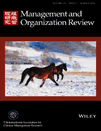![]() A group of authors in China has retracted their December 2013 paper in PLoS ONE after realizing that they’d been studying the wrong cells.
A group of authors in China has retracted their December 2013 paper in PLoS ONE after realizing that they’d been studying the wrong cells.
The paper, “Up-Regulation of pVHL along with Down-Regulation of HIF-1α by NDRG2 Expression Attenuates Proliferation and Invasion in Renal Cancer Cells,” came from Lei Gao, of the Fourth Military Medical University, in Xi’an, and colleagues. It purported to find that:
Continue reading Wrong cell line leads to retraction of kidney cancer study
 Last month, researchers published a paper whose conclusions suggested that looking at Arctic sea ice in the autumn
Last month, researchers published a paper whose conclusions suggested that looking at Arctic sea ice in the autumn 






